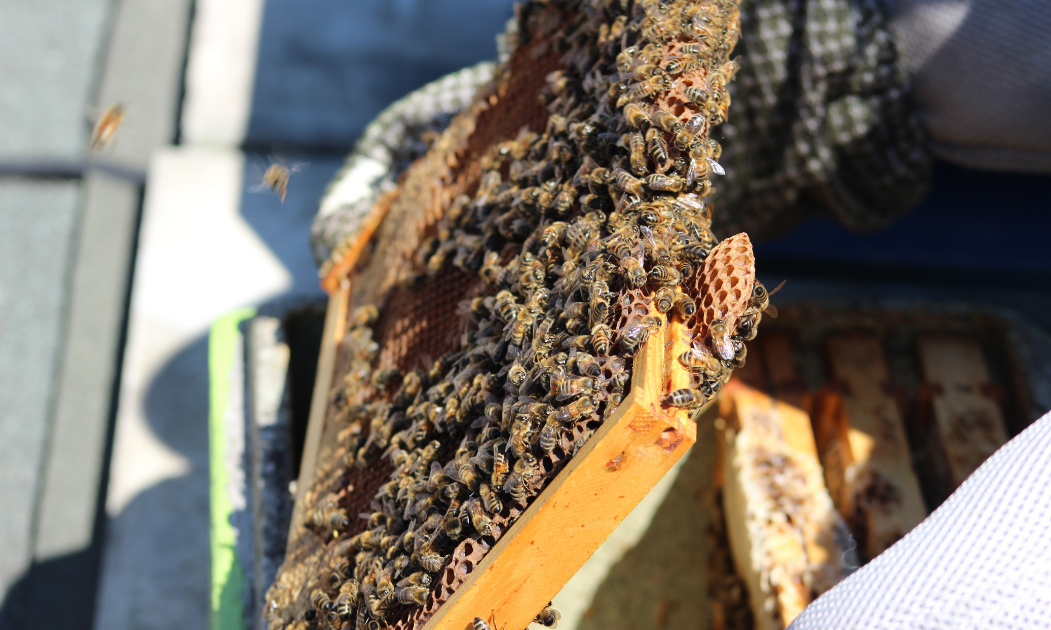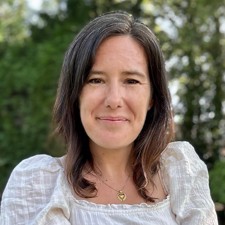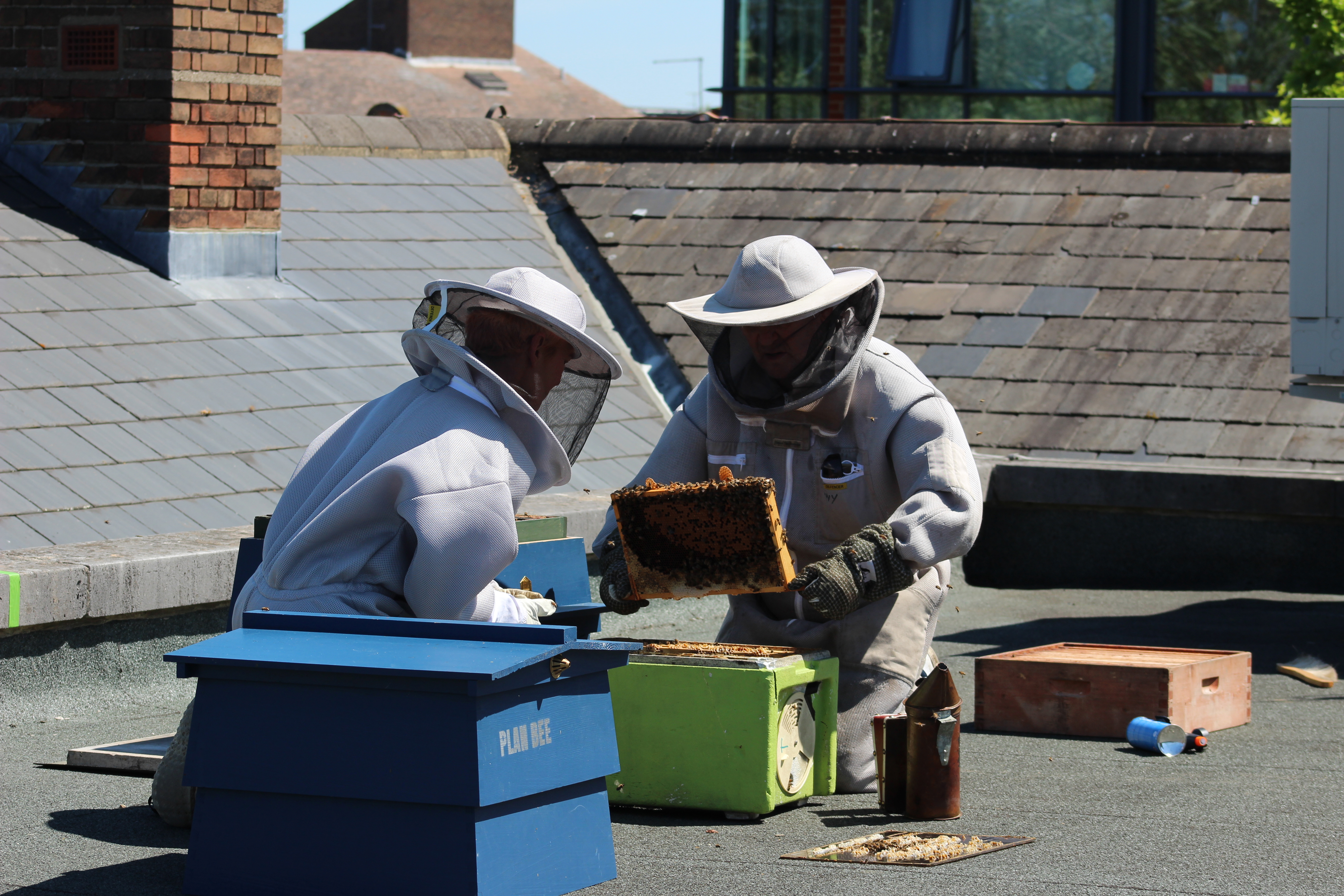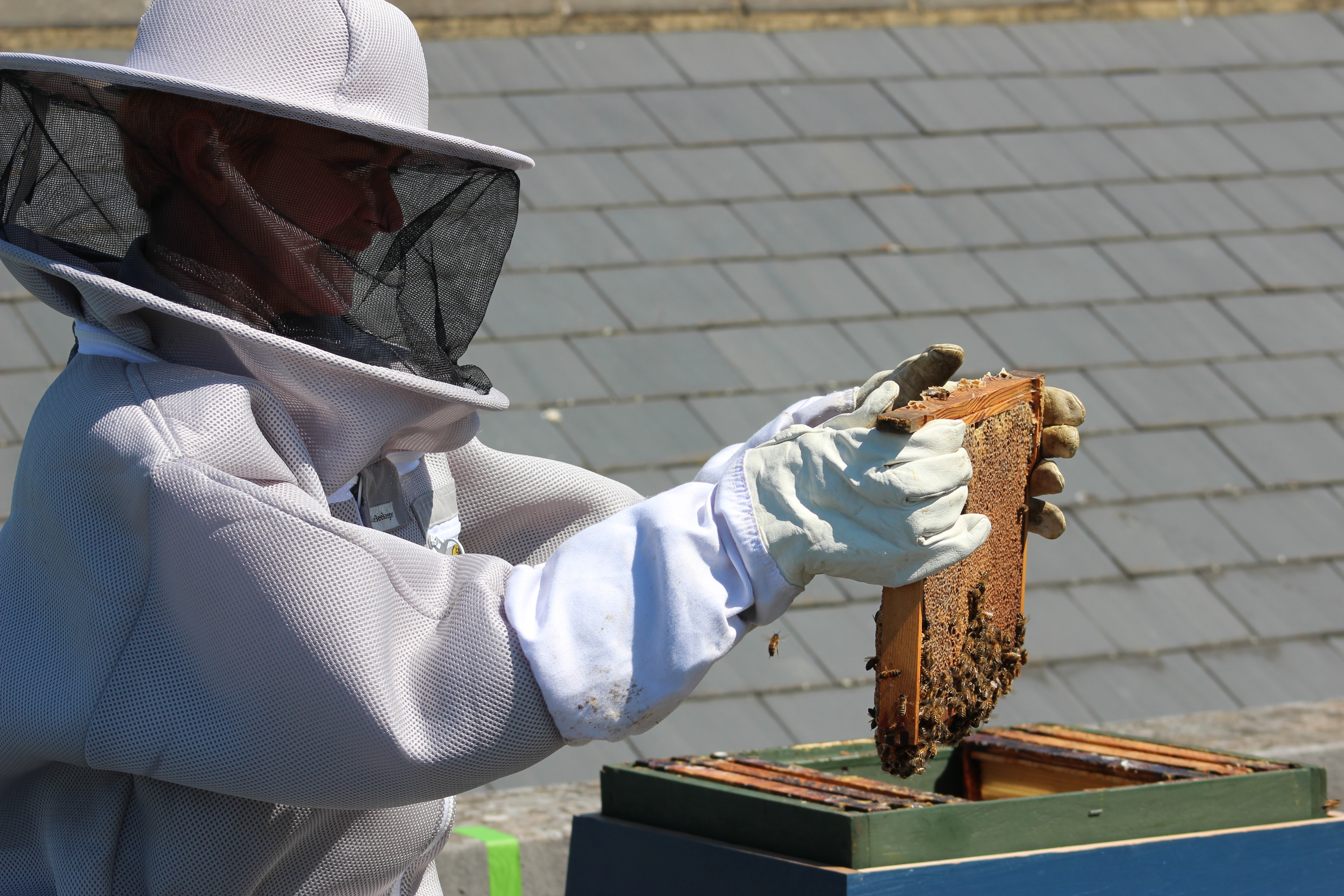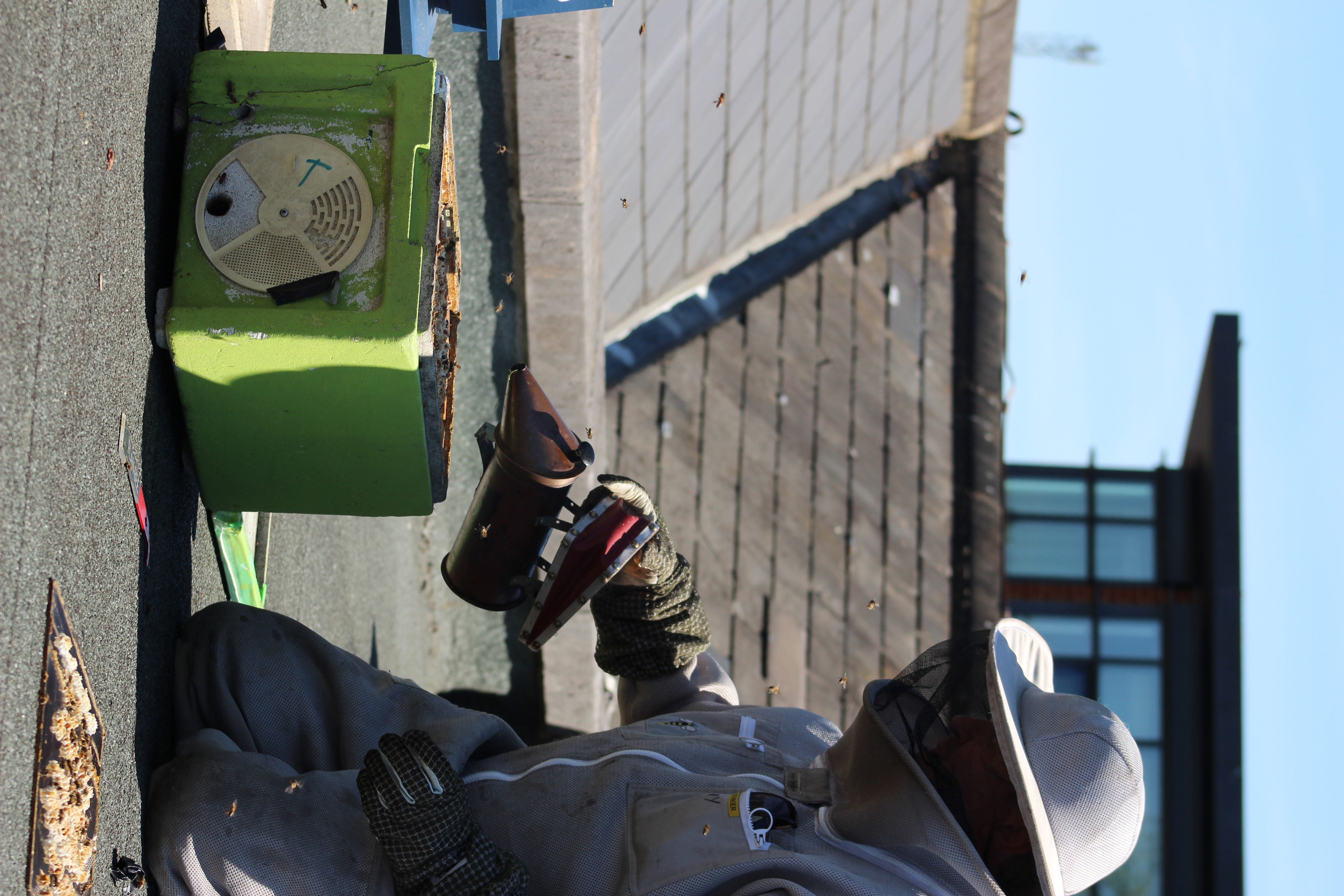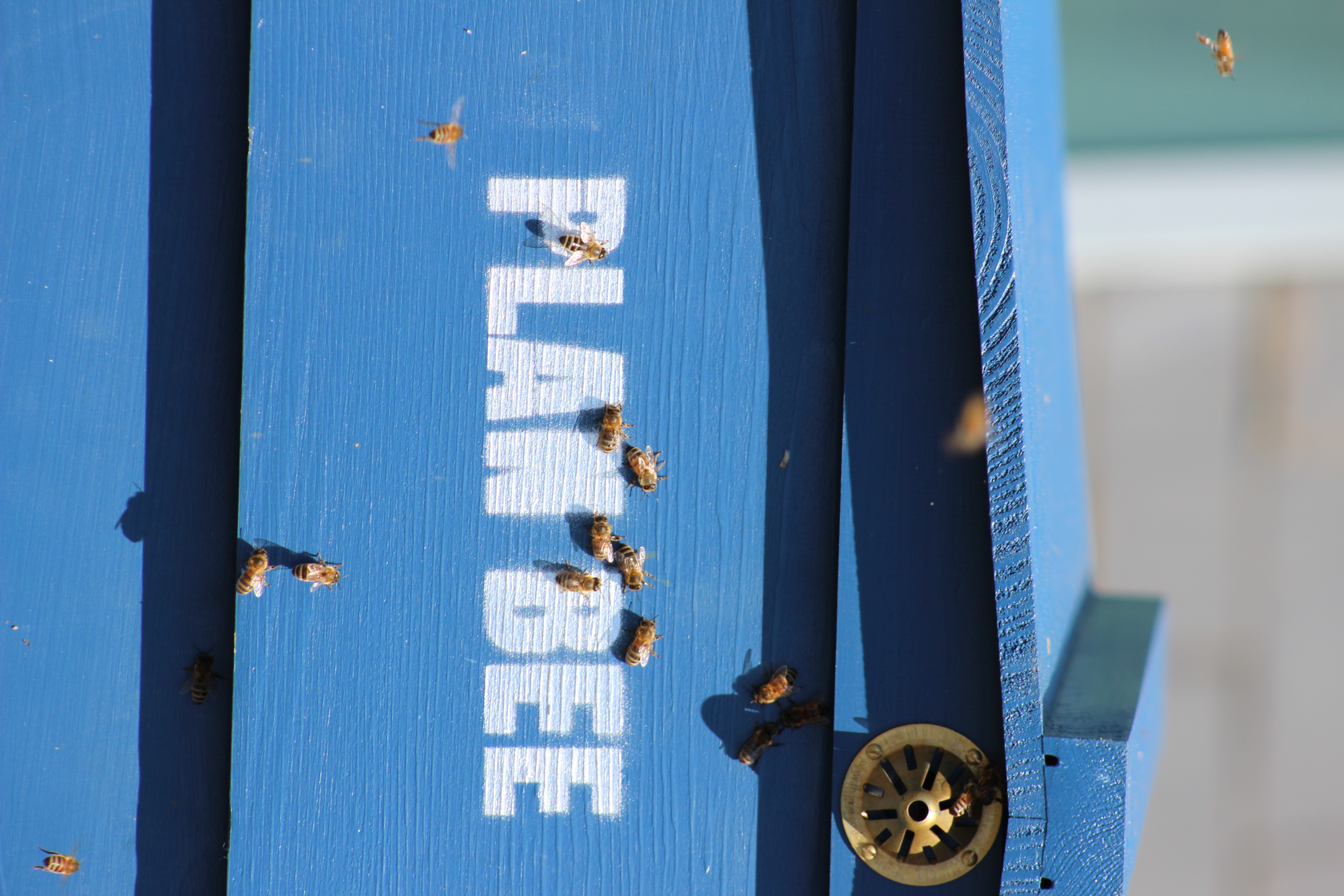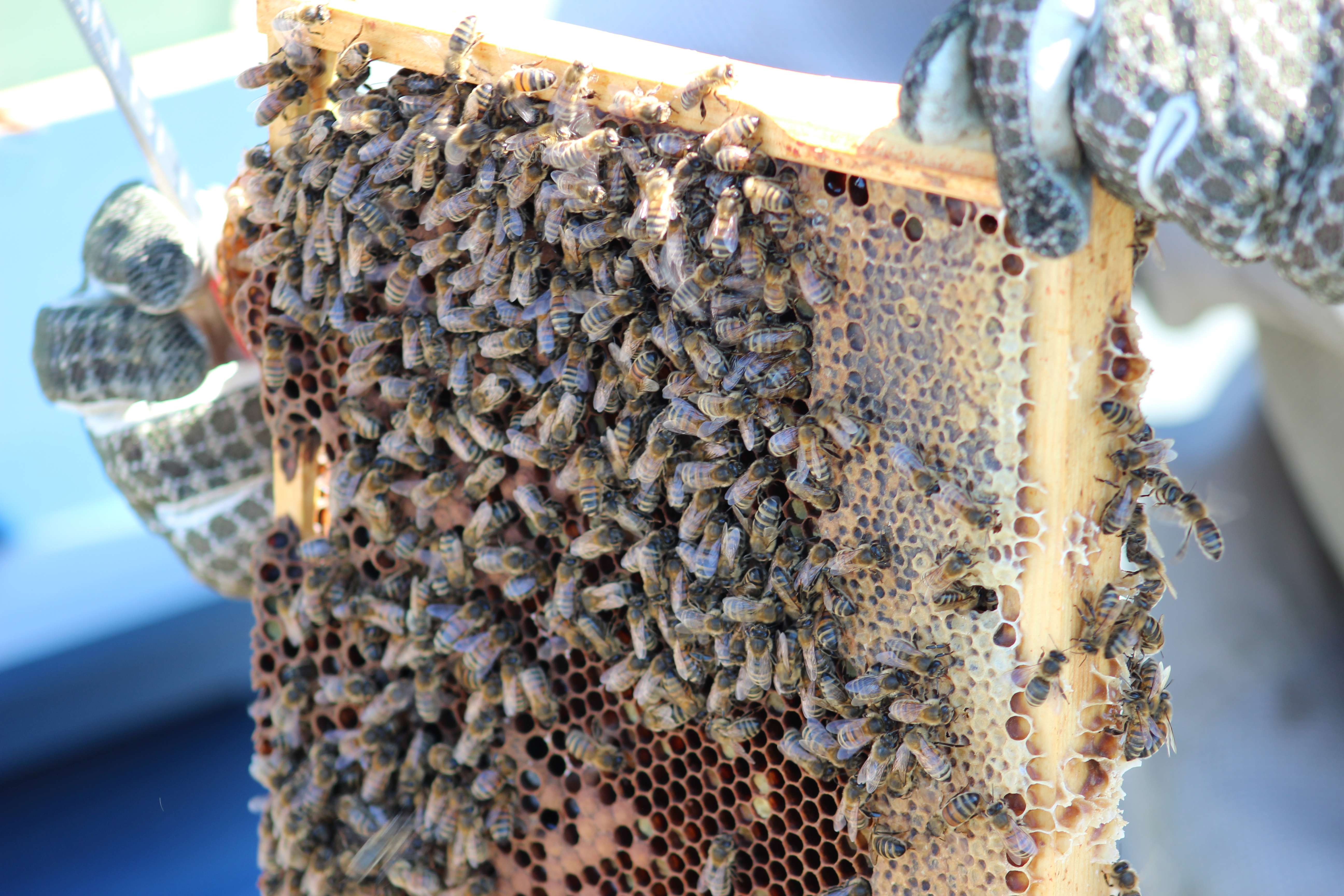Rooftop beehive installed at Chelmsford's Civic Centre
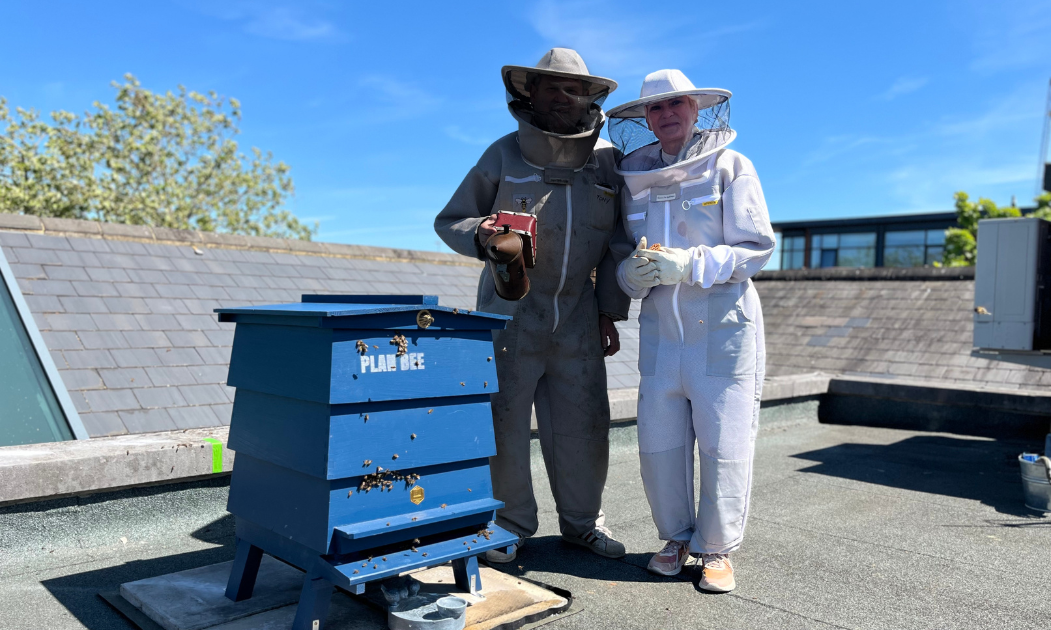
An urban beehive on the roof of Chelmsford Civic Centre has welcomed a colony of 50,000 honeybees to support pollination, enhance local biodiversity, and foster thriving green spaces in the city.
Meet the bees
The Chelmsford Civic Centre hive is populated by a colony of native black bees, a species that almost became extinct in the early 20th century. Conservation efforts have thankfully seen the population increase in recent years, but sadly wild bee numbers are still in serious decline in the UK due to loss of habitat, the use of harmful pesticides and climate change. Reviving the UK's dwindling population of wild bees is very important as they play a crucial role in our food chain, pollinating crops and flowering plants.
Cllr Moore assisting Tony Briggs from Plan Bee to install the hive on the Chelmsford Civic Centre roof.
The roof top location at Chelmsford Civic Centre offers a safe space for bees, protecting them from many of the disruptions often found at ground level. This elevated position gives them cleaner air away from pollution and easy access to treetops which can be a good source of nectar and pollen.
The hive was installed by organic bee keeping business Plan Bee. Owner Tony Briggs advocates for a natural beekeeping approach, helping support sustainability and local ecosystems.
“"I allow my bees to live as they do in nature. Where I can, I let the bees decide what to do and this includes their environmental, genetic and management decisions. I only install small bespoke apiaries with wooden and beeswax hives, and I don't use any chemicals or plastics. I’m thrilled to have a hive on the council rooftop with the bees working away as we speak."
Tony Briggs, owner of Plan Bee
As they begin to explore their new home and forage for food, honey stocks in the hive will increase as they prepare for the colder months. The British Beekeepers' Association estimates bees need to fly about 55,000 miles (that’s 2.2 times around the world) to make just one pound of honey and an average hive can produce around 25 lb of surplus honey in a year.
Bees for biodiversity
Our urban beehive is more than just a sweet addition to the building - it's an important step toward supporting biodiversity.
Bees are incredibly important pollinators. Their work directly supports the food chain and natural habitats so giving bees a safe home in urban environments helps to build more sustainable and environmentally friendly cities.
Bees often follow specific paths between their hives and feeding areas - called bee lines - that help optimise their pollination patterns. Placing hives strategically in urban areas helps support the natural flow of these essential pollinators across the city.
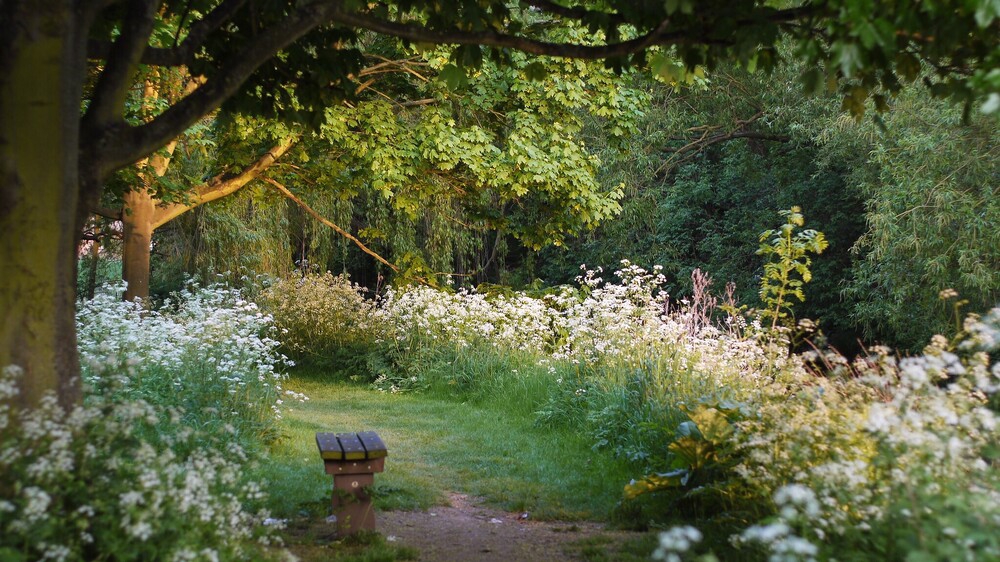
Creating wildlife corridors for bees, pollinators and local wildlife
The hive at Chelmsford Civic Centre is a bee-friendly distance from the pollinator garden in Central Park, and Admirals Park Local Nature Reserve further beyond. The garden, located by the Central Park Café, was designed to be a thriving horticultural hub at the centre of a number of ecosystem corridors, linking down the river valley and out of the city towards Admirals Park which was declared a local nature reserve in 2021.
The pollinator garden contains plants known to be rich sources of nectar and pollen and is cared for in a way that encourages and supports biodiversity. In this space the grass is left to grow longer, creating a safe and abundant habitat for pollinators, and seed heads are left on plants to be vital food sources for wildlife in the winter months.
Chelmsford City Council’s Cabinet Member for a Greener Chelmsford, Councillor Rose Moore, says:
“"What a joy to meet Tony and the wondrous colony of black bees he has homed in the heart of Chelmsford city centre! It’s vital to create corridors for nature throughout our built environments, and that’s a priority in our ongoing Space To Thrive initiative. Rooftop hives are especially beneficial to bees as they can travel freely to feeding areas nearby, such as Central Park, unencumbered by obstacles. Through our Species- Rich Grassland policy we’re creating richer habitats for pollinators year-on-year, reaching every corner of our district, and I can’t wait to see these tiny heroes celebrated in our forthcoming photo competition! "
Cllr Rose Moore, Cabinet Member for a Greener Chelmsford
Celebrating bees, pollinators and insects
To celebrate nature in our neighbourhoods, the City Parks team have launched a new Space to Thrive photography competition celebrating bees, pollinators and insects.
The competition is open to anyone living in the Chelmsford City Council area and photographers are invited to share their best photos of bees, pollinators and insects from around the district.
There are two categories to choose from:
- Nature on show: capture your favourite creatures on film as they enjoy their natural habitats whether that’s gathering pollen, spinning webs or burrowing in the grass.
- Bee-ing inspired: showcase all the ways bees, pollinators and insects help make the Chelmsford district a happier, healthier place to live. From bug hotels to wildflower meadows, veggie patches to public pieces of art, this category challenges you to think creatively around the theme.
The finalists will have their images displayed in an outdoor gallery at Oaklands Park during August and one overall winner will receive a beekeepers taster session and a pollinator goodie bag.
To find out more and how to enter, visit the Love Your Chelmsford website. Entries must be submitted by 11:59pm on Sunday 29 June 2025.
